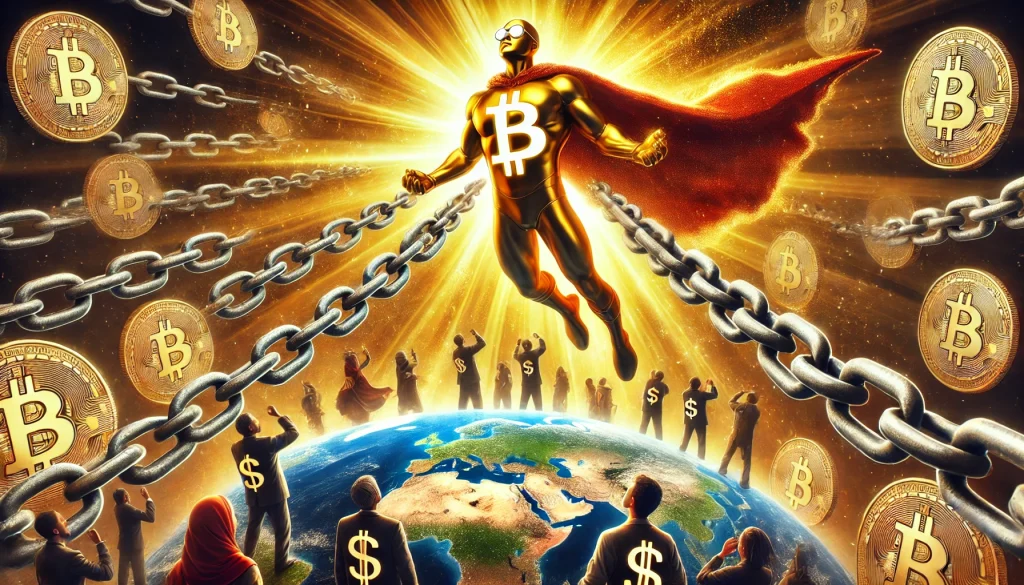🧠 Bitcoin, the Dollar & the Power Game: Should the U.S. or the Global South Lead the Crypto Reserve Revolution?
“Bitcoin isn’t just money. It’s a signal. A shift. A challenge to everything we thought was permanent.”
🇺🇸 Why Are People Talking About the U.S. Using Bitcoin as a Reserve Currency?
Let’s start with the big idea: reserve currencies are what countries use to back their economies and conduct global trade. Right now, the U.S. dollar reigns supreme. But what if the U.S. began holding Bitcoin as a reserve asset—like it does with gold?
In March 2025, President Donald J. Trump signed an executive order establishing the Strategic Bitcoin Reserve and the U.S. Digital Asset Stockpile, marking a historic pivot in U.S. financial policy.
🔗 Executive Order – Strategic Bitcoin Reserve (whitehouse.gov)
This reserve will include Bitcoin seized through asset forfeiture and, potentially, additional BTC acquisitions as long as they are budget-neutral. It’s a signal that the U.S. is finally recognizing Bitcoin’s role in the future of money.
But here’s the twist: the U.S. didn’t get here by choice—it got here by pressure.
💵 Does the U.S. See Bitcoin as a Threat to the Dollar?
Yes—and no.
On one hand, U.S. regulators have called crypto “risky” and repeatedly cracked down on exchanges and stablecoins. But behind the scenes? There’s growing awareness that Bitcoin undermines dollar dominance in three big ways:
- Bitcoin bypasses SWIFT and sanctions. That’s scary if you use finance as a geopolitical weapon.
- It’s borderless. No need for central banks or political intermediaries.
- It limits monetary manipulation. You can’t print Bitcoin.
So while the U.S. may publicly critique Bitcoin, it also recognizes its potential as a new global layer of value. The Strategic Bitcoin Reserve is a defensive—and strategic—response.
What’s Bitcoin’s Real Value Proposition?
If you’re a teen reading this, think beyond “number go up.” Bitcoin’s true value is independence.
- It can’t be devalued by governments printing more of it.
- It operates outside of banks.
- It resists censorship.
- It creates trust through code, not institutions.
In short: Bitcoin is the opposite of fiat money. That’s why it appeals to rebels, reformers, and yes—even nations who are tired of playing by the dollar’s rules.
🌍 Where Does Bitcoin Get Its Value?
Bitcoin gets its value from:
- Scarcity (only 21 million will ever exist)
- Security (run by thousands of decentralized nodes)
- Utility (a global, peer-to-peer system that can’t be shut down)
- Network effect (millions of users and growing)
But perhaps most importantly—it gets its value because people believe in it as a hedge against unstable monetary systems.
🌐 The Shifting Global Order
Historically, the U.S. dollar became dominant after World War II. Countries agreed to settle trades in dollars, making it the global reserve currency.
But things are shifting:
- China and BRICS nations are exploring alternatives.
- Sanctions have pushed countries like Russia and Iran to look for dollar-free systems.
- Bitcoin adoption is rising in unstable economies like Argentina, Nigeria, and Lebanon.
The question now: Will the U.S. innovate or resist the shift?
🗺️ What Happens to Countries Without Monetary Autonomy?
Here’s where it gets real. Many countries—especially in the Global South—don’t control their financial destiny. Their currencies are:
- Pegged to the dollar or euro
- Prone to inflation or devaluation
- Heavily influenced by IMF and World Bank policies
This makes them dependent—and vulnerable.
Bitcoin offers an escape hatch. A way to build a parallel system that doesn’t require permission from Washington, London, or Brussels.
🗺️ Who Should Be Leading This: U.S. or the Global South?
The U.S. has the resources. The tech. The developers. But not the motivation.
The Global South, however, has:
- The incentive to escape debt cycles
- The pain of currency failure
- The vision of financial self-determination
So while the U.S. could lead a shift to Bitcoin as a reserve, the Global South might need to.
🔥 Case Study: El Salvador 🇸🇻
In 2021, El Salvador became the first country to adopt Bitcoin as legal tender. President Nayib Bukele called it an opportunity to:
- Bank the unbanked
- Reduce remittance costs
- Decouple from dollar dependence
But the IMF warned El Salvador and withheld funding. Global credit agencies downgraded their ratings. The message was clear:
“You’re free to choose—unless you choose Bitcoin.”
🌍 Case Study: Central African Republic 🇨🇫
In 2022, the Central African Republic followed suit. They launched their own Sango Coin, tied to Bitcoin, and passed laws to attract crypto investments.
Once again, the response from the IMF and global institutions was chilly.
Countries in economic distress are expected to rely on traditional financial aid—not innovate with decentralized tech.
🧠 So What Should Teenagers Learn from This?
- Money is power. Whoever controls the money often controls the rules.
- Bitcoin isn’t just a digital asset—it’s a political tool.
- The global financial system is shifting. Slowly. Unevenly. But it is.
- Innovation often comes from the edges. Not the center.
- Your generation will decide whether we rebuild a freer, more equitable system—or just digitize the same old problems.
✊ Final Thoughts: Rebel or Reserve?
The U.S. may one day hold Bitcoin as a reserve—not because it wants to, but because it has to. And now, with the Strategic Bitcoin Reserve officially established, that future is already taking shape.
But until then, the most powerful Bitcoin revolution may come from the margins—from nations who’ve been locked out of prosperity and are now finding a new way in.
Teenagers today aren’t just future investors.
You’re future leaders, builders, and policymakers.
Understand the system.
Question who benefits.
And then—build better.

